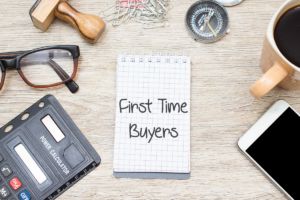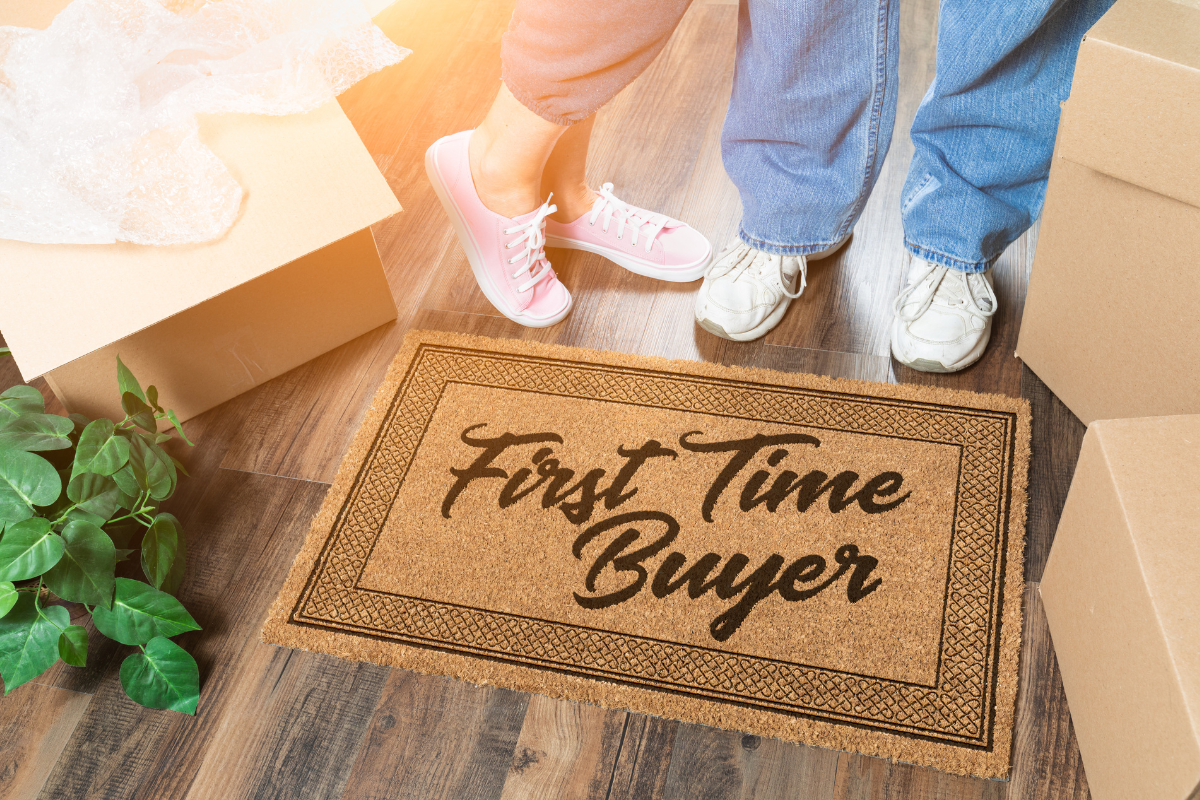The Ultimate First-Time Homebuyers Guide in Victoria
So, you’re ready to buy your first home. Congratulations! There’s nothing quite like homeownership, which gives you more flexibility and provides an escape from the volatile rental market.
Unfortunately, Canada recently decided to end its Incentive Program for first-time buyers, leaving many unsure of their home-buying eligibility. While the incentive was a great way to leave the rental market, options are still available – if you know where to look. The first step is working with a trusted Victoria mortgage broker.
We’ll explore them in this guide and reveal everything you need to know about buying your first home in Victoria. Let’s dive straight in.
Can I Buy a Home in Victoria?
It’s no secret that getting on the property ladder is challenging in Canada. With lots of buyers competing with each other and a limited supply of properties, purchasing your first home can seem like an uphill struggle.
According to Houseful, the average cost of a property in Victoria was just over $700,000 in February 2024, a significant decrease from $755,000 in September 2023. This is great news for those looking to enter Victoria’s competitive real estate market.
The Times Colonist also reports that property prices and mortgage rates have stabilized, making ownership more accessible. Between January 2023 and January 2024, real estate sales increased by 22%, highlighting growth within the market.
So, while purchasing your first home still requires a lot of planning and saving, 2024 is a great year to get on the ladder.
Next, we’ll reveal the steps you should take when buying a home.
Determine Your First-Time Homebuyer Budget

In an ideal world, you’d be able to buy a property outright, but that’s unlikely. Instead, you’ll have to evaluate your income and save money to afford a new home. Joint buyers usually have more wiggle room with their budgets because they’re contributing two incomes.
In Canada, properties under $500,000 require a minimum downpayment of 5%, while anything over $500,000 requires the initial 5% downpayment and a further 10% for the rest of the property price.
Self-employed borrowers and individuals with poor credit histories may need to contribute a larger downpayment.
How Much Can I Borrow?
When determining whether you’re eligible for a mortgage and how much you can borrow, lenders will assess numerous factors, including:
- Your income
- Monthly commitments
- Your employment status
- Whether there’s a history of responsible borrowing
Before looking at properties and applying for a mortgage, it’s a good idea to check your eligibility and use a mortgage calculator to get an idea of how much you can borrow.
Upfront Costs
Mortgage costs are typically split into upfront expenses and ongoing first-time homebuyer costs. The upfront costs ensure you can purchase a home and secure a mortgage. Many people save for years to secure enough money, but it’s also possible to use inheritance money.
Down Payment
As mentioned, most first-time buyers must contribute at least 5% of the property’s purchase price—unless it’s over $500,000. However, some mortgage providers are stricter than others and might ask for a higher down payment.
The more you can offer upfront, the lower your mortgage will be. A higher down payment also secures better interest rates and gives you a broader selection of lenders.
It’s a good idea to save early and put a percentage of your monthly income in a separate account.
Opening a FHSA (First Home Savings Account) or a TFSA (Tax-Free Savings Account) can help you save money quicker and avoid paying tax on any of your savings.
Closing Costs
Many new buyers forget that closing costs are necessary to purchase their first home. These expenses include legal fees, appraisals, valuations, and land transfer tax. The amount each buyer pays varies, but it typically falls between 3% and 5% of the property’s value.
Putting money aside to cover closing costs can help you stay on track and ensure there are no barriers to buying the property.
Unsure of what your closing costs as a FTHB are? Our free closing costs calculator lets you plan for the future.
Realtor Fees
Generally, the property seller pays a commission to realtors in British Columbia, cutting your potential expenses down a lot. Once the property sells, the current owner will give their – and your – realtor commission.
However, the realtor might have administrative fees covering the paperwork they handle during the process.
Ongoing FTHB Costs
Many new homeowners forget the ongoing costs of paying for and maintaining a property. While you might be able to afford the outright costs, what about mortgage payments, maintenance, and applicable taxes?
Let’s look at the ongoing expenses for first-time buyers.
Mortgage
Most mortgages in Canada last up to five years, after which you’ll either find a new deal with your current provider (also known as mortgage renewal) or move to a different one. The amount you’ll pay each month depends on the lender’s interest rates, so shopping around and finding the best deal for your needs is essential.
While heading to your bank might seem like a good idea, there are many benefits to using a mortgage broker, including saving money.
Brokers often work with first-time buyers who might not have great credit scores or a history of defaulting on loans. Many also partner with specialist lenders who are unavailable through mainstream mortgage applications.
Most importantly, a mortgage broker can find a deal that aligns with your current financial circumstances and future goals, making them a valuable tool for first-time buyers.
Renovations and Home Improvement
If the initial appraisal shows minor issues with the property, you might be able to secure it for a lower price. However, it will also become your responsibility to address any faults and ensure the property is safe.
Home improvements, whether knocking through walls or redecorating, can be expensive—even if you choose the DIY route. If you seek professional help, you’ll need to pay for materials and labour.
Renovating and improving your property is beneficial because it increases its value and allows you to personalize the interior.
Property Taxes
Canada has different property taxes for each province. British Columbia defines the amount you’ll pay based on the home’s value and your status. Municipal tax is calculated by location, and you can find out your rates on the BC Assessment website.
Buyers in the following categories might have to pay additional taxes:
Foreign Buyers
Individuals purchasing properties with a foreign trust or corporation will need to pay the municipal tax rate and a further 20%. However, there are some exemptions for BC Provincial Nominees or emigrants who become Canadian residents.
GST Properties
New constructions are subject to the British Columbia Goods and Services Tax, which means you’ll pay 5% of the property’s sale price. However, rebates are available for people who build their own homes (valued under $450,000) or buy shares in a cooperative complex.
Insurance
Many mortgage providers in BC also require buyers to secure home insurance. The provider can repossess the property should the buyer default on the mortgage payments, and insurance protects it against severe damage.
Your home insurance payments differ depending on the provider and your amount of coverage. Choosing the cheapest plan might seem like a good idea, but these policies often have strict clauses.
Learn More About First-Time Homebuyer Benefits in Victoria

From never having to worry about jumping through hoops when applying for a rental property to having control over your property, homeownership is a mark of freedom. Buying today means more financial freedom in the future.
If you’d like to learn more about FTHB benefits, our extensive guide has everything you need to know.
To summarize:
- FTHB can take advantage of tax relief initiatives to make ownership more affordable.
- Tax-free savings accounts help you build a downpayment quickly.
- When you own a property, you can do what you want with it.
- Performing improvements and renovations can increase the value of your home.
- Once you prove you’re a responsible borrower, you can access better mortgage rates.
Need Help With Your First-Time Homebuyers Mortgage in Victoria?
Navigating the property market as a first-time buyer can be overwhelming, but understanding where to save money will make the process much easier. Prime Mortgage Works is a specialist broker working with clients in Victoria, BC.
Our professional team of brokers have access to a diverse network of lenders and go out of their way to find each client the best deal for their needs. Whether you’re on a limited income, have a low credit score or don’t know where to start, we’d love to hear from you.


